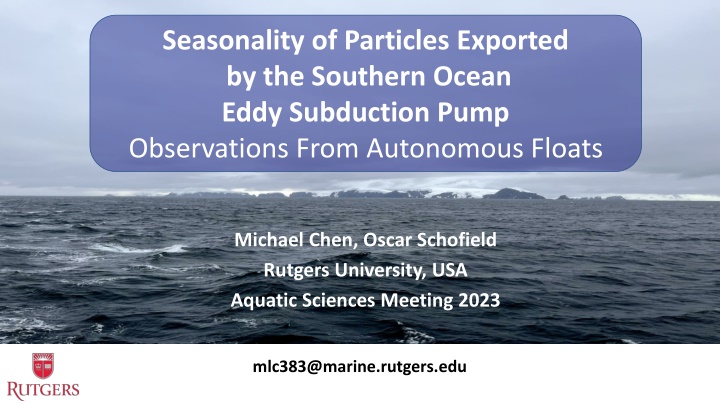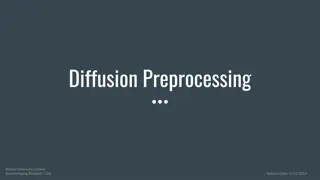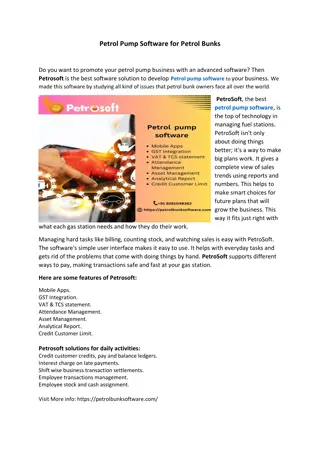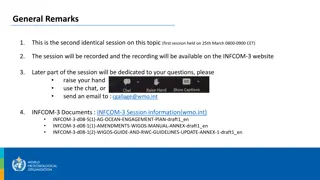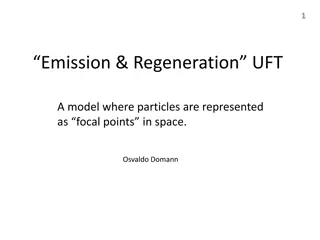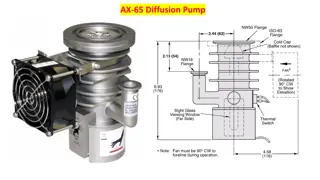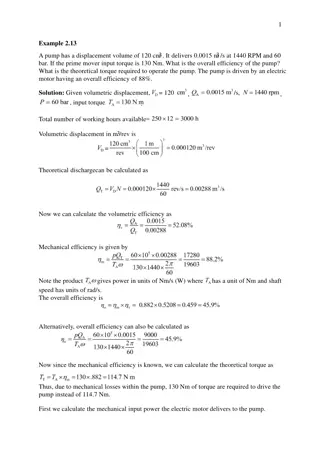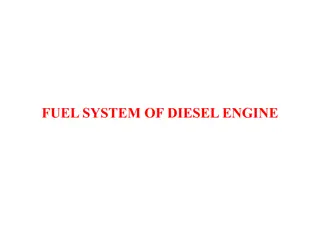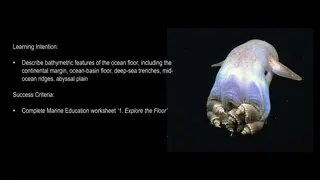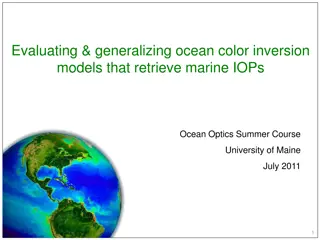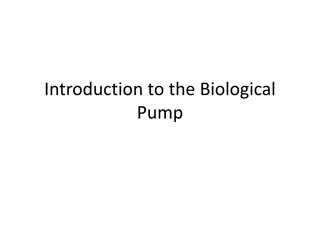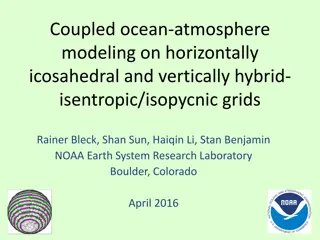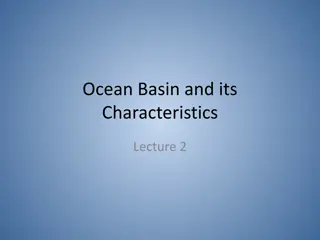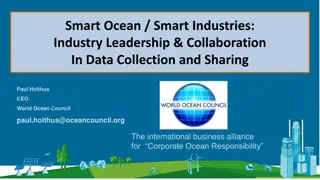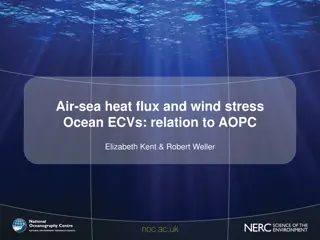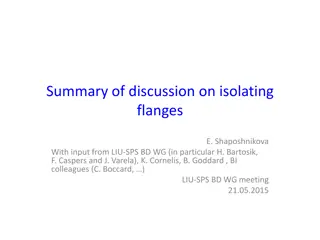Seasonality of Particles Exported by the Southern Ocean Eddy Subduction Pump
The Southern Ocean Eddy Subduction Pump plays a crucial role in global carbon cycling, contributing significantly to the ocean's uptake of anthropogenic CO2. This research aims to characterize the seasonality and particle assemblage of the pump to better understand its role in carbon export. Various mechanisms and pathways of the Eddy Subduction Pump are explored, highlighting its importance in the Southern Ocean's ecosystem.
Uploaded on Sep 10, 2024 | 2 Views
Download Presentation

Please find below an Image/Link to download the presentation.
The content on the website is provided AS IS for your information and personal use only. It may not be sold, licensed, or shared on other websites without obtaining consent from the author.If you encounter any issues during the download, it is possible that the publisher has removed the file from their server.
You are allowed to download the files provided on this website for personal or commercial use, subject to the condition that they are used lawfully. All files are the property of their respective owners.
The content on the website is provided AS IS for your information and personal use only. It may not be sold, licensed, or shared on other websites without obtaining consent from the author.
E N D
Presentation Transcript
Seasonality of Particles Exported by the Southern Ocean Eddy Subduction Pump Observations From Autonomous Floats Michael Chen, Oscar Schofield Rutgers University, USA Aquatic Sciences Meeting 2023 mlc383@marine.rutgers.edu
The Southern Ocean plays an outsized role in global carbon cycling, possibly contributing up to 50% of ocean s annual uptake of anthropogenic CO2 (Gruber et al, 2009)
Carbon Export: Biological Gravitational Pump Boyd et al (2019)
Carbon Export: Particle Injection Pumps Particle Injection Pumps Boyd et al (2019)
Motivation: Motivation: Constraining the Eddy Subduction Pump s role in export requires characterizing its seasonality seasonality and the injected particle assemblage injected particle assemblage
The Eddy Subduction Pump (ESP) Driven by submesoscale circulation associated with eddies and jets Schematic by Melissa Omand
The Eddy Subduction Pump (ESP) Vertical velocities inject surface water along tilted isopycnals Schematic by Melissa Omand
The Eddy Subduction Pump (ESP) 3D pathway of water transport Schematic by Melissa Omand
The Eddy Subduction Pump (ESP) Float profiles can detect patches of subducted water Schematic by Melissa Omand
The ESP has been estimated to contribute <19% of export flux across the Southern Ocean, but can be much more locally important Llort et al (2018)
Methods: Methods: detecting ESP anomalies from BGC-Argo float profiles Subducted water is associated with mesopelagic anomalies in: spice Apparent Oxygen Utilization (AOU) Schematic by Melissa Omand
Methods: Methods: detecting ESP anomalies from BGC-Argo float profiles Methods based on Chen et al (2021) and Llort et al (2018) Schematic by Melissa Omand
Methods: Methods: detecting ESP anomalies from BGC-Argo float profiles Find concurrent peaks in spice and AOU Schematic by Melissa Omand
Methods: Methods: detecting ESP anomalies from BGC-Argo float profiles Define reference profiles Schematic by Melissa Omand
Methods: Methods: detecting ESP anomalies from BGC-Argo float profiles Define reference profiles Schematic by Melissa Omand
Methods: Methods: detecting ESP anomalies from BGC-Argo float profiles Calculate magnitude of anomalies Schematic by Melissa Omand
Methods: Methods: detecting ESP anomalies from BGC-Argo float profiles Schematic by Melissa Omand
ESP events were found in about 5% of profiles, concentrated in areas with strong submesoscale circulation
Constraining the Eddy Subduction Pumps role in export requires characterizing its seasonality the injected particle assemblage injected particle assemblage seasonality and
Constraining the Eddy Subduction Pumps role in export requires characterizing its seasonality and the injected particle assemblage Basin-wide seasonal patterns
What about the injected carbon? What about the injected carbon?
Subducted POC also peaks in the summer, mirroring biomass in the surface mixed layer
Can we say anything about the subducted particle Can we say anything about the subducted particle assemblage? assemblage? Chl:bbp ratios: Variations can indicate differences in surface particle assemblages, or in particle freshness at depth
Subduction patches: chl:bbp ratios are highest in early spring Mixed layer: chl:bbp ratios are highest in late spring/summer
Material subducted in early spring may be fresher, or less grazed, before grazers catch up to surface bloom initiation
This is consistent with larger AOU anomalies (weaker signature of respiration) in the spring
Alternatively, these may indicate that we are detecting more recent subduction in the spring
Chl:bbp ratios are loosely associated with stronger AOU anomalies
On a basin-wide scale, the eddy subduction pump shows seasonal patterns: Summer Spring Strongest events detected Most events detected Freshest material subducted Most POC subducted
The Eddy Subduction Pump may have different consequences in different seasons, affecting: Delivery of carbon to mesopelagic ecosystems The fate of subducted carbon / longer-term sequestration
Acknowledgements Data were collected and made freely available by the Southern Ocean Carbon and Climate Observations and Modeling (SOCCOM) Project funded by the National Science Foundation, Division of Polar Programs (NSF PLR -1425989 and OPP-1936222), supplemented by NASA, and by the International Argo Program and the NOAA programs that contribute to it. The Argo Program is part of the Global Ocean Observing System. FINESST Grant #80NSSC22K1451
Questions? mlc383@marine.rutgers.edu
